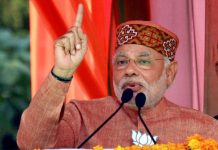China mediating a major agreement between traditional rivals Saudi Arabia and Iran marks a break with the past in that a significant development has occurred in West Asia without US playing any role in it.
Asian Drama/Syed Nooruzzaman
A fresh Great Game is on in West Asia, the world’s most volatile region. Now China, using all the resources under its control, is being approached to replace the US as a power broker since Washington DC has deprioritised West Asia owing to its full involvement in the Russia-Ukraine war. China, emerging as the most sought-after power in the region, has succeeded in mediating a major agreement, signed in Beijing, between traditional rivals Saudi Arabia and Iran for the re-establishment of their snapped diplomatic relations. However, it remains to be seen if the Riyadh-Teheran deal really brings about the desired result.
It is for the first time since the US dominance began in the region with the end of the 1956 Suez war that a major development has occurred in West Asia without Washington playing a role in it. Of course, China had the right credentials to play the mediator’s role it did between Saudi Arabia and Iran, looking for a detente in their relations. Beijing has friendly relations with both, one representing the Sunni Muslim camp and the other the Shia camp, and is not in the good books of Israel. China has made enormous investments in Iran which places Beijing in a position to influence Teheran’s decisions. The Saudis, having no longer as warm relations with the US as they had in the past, have been tilting towards China for some time, providing hints of planning to shift their financial resources to Chinese banks.
The Saudis and the Iranians are now committed to normalising their diplomatic relations, ruptured following an attack on the Saudi Embassy premises in Teheran when Riyadh executed on January 2, 2016, a controversial Iranian cleric, ignoring international pressure to spare his life. There is now the possibility of a new dawn in Saudi-Iranian ties, leading to a relaxed atmosphere in the Middle East.
True, what has happened could be possible only through a non-US mediator as Washington and Teheran have been at daggers drawn for decades. And today there could be no mediator more effective than China as it has been having friendly ties with Riyadh as well as Teheran for a long time. China, the biggest oil importer today, would obviously want to see peace and stability in the region to safeguard its own energy-related interests. China’s interests — its oil and gas imports from West Asia and huge investments in Iran — in the region would remain safe only when there is stability there.
The thaw in Riyadh-Teheran ties is also rightly being interpreted as an end to Yemeni Houthi tribal attacks on Saudi Arabia and Shia-Sunni rivalry-related problems in Syria, Iraq, Lebanon and elsewhere. It would now be easier for Saudi Arabia to handle any kind of disturbance in its Shia-dominated areas, rich in oil and other natural resources.
There is bound to be a lot of savings in terms of financial and other resources for both Saudi Arabia and Iran. This was the major factor why the Saudis had a patch-up in their relations with Qatar too in January 2021.
Iran, which has been faced with a major resource-crunch following the US economic sanctions, needed to end its open rivalry with Saudi Arabia to be able to focus on more pressing issues. The Persian Gulf nation has been passing through very tough times not only because of its strained ties with the US but also owing to internal disturbances like the one caused by women’s protests. Teheran has been spending a lot on supporting the Houthi rebels in Yemen, friendly Shia political parties in Iraq, the Hezbollah militia in Lebanon, the Islamic Jihad in the Palestinian territories, etc. Now Iran will not have to bother
about allocating resources for these non-productive activities.
Likewise, Saudi Arabia — which has been providing financial and other kinds of support to the Hadi Mansour government in Yemen, the political forces fighting against the Bashar Al-Assad regime in Syria, Sunni groups in Iraq and friendly elements in Lebanon and the Palestinian territories — too will no longer have to be worried about these avoidable commitments.
In a way, the coming together of Saudi Arabia and Iran may lead to the weakening of the Shia-Sunni factor in the entire West Asian region which has been a major source of tension there. This is bound to highlight the emergence of China as a new catalyst for peace. Already, most Arab countries have normalised their ties with Israel, but the agreements they reached were brokered by the US. The latest is the Abraham Accords signed in 2020 between the UAE and Israel, and Bahrain and Israel, accepting the Jewish state’s right to exist as a sovereign nation in the Arab world. The previous Washington-brokered major peace agreements between Israel and the Arabs, including the Palestinians, were the 1978 Camp David Accord, the 1993 Oslo Accord and the 1994 Israel-Jordan Peace Treaty.
There are, however, two major factors which may keep Saudi Arabia and Iran suspicious of each other. Though the Saudis have been thinking of normalising their diplomatic ties with Israel for a long time, Iran cannot go for such a course of action vis-a-vis Israel. There is little possibility of Teheran and Tel Aviv normalising their diplomatic relations so long as the US and Iran remain each other’s bitter enemies.
There is also every likelihood of Teheran’s intentions being suspect owing to its nuclear programme remaining intact despite international pressure on the Persian Gulf nation to abandon it in the interest of peace and stability in the Middle East. Its nuclear weapon ambitions would remain a source of major tension for both Saudi Arabia and Israel. Tele Aviv has been strongly feeling a threat to its very existence if Iran does not scrap its nuclear weapon programme. The Saudis are already known to have expressed their desire to the Americans that Riyadh cannot remain a silent spectator if Teheran is allowed to become a nuclear weapon power. Whether the Saudi stand in this regard remains unchanged today is not known. Iran’s nuclear programme, in any case, remains undisturbed. Teheran has been working quietly to acquire the weapon of mass destruction with virtually no objection from any quarter since the 2015 nuclear deal between Iran and the UN Security Council’s five permanent members (the US, the UK, France, China and Russia) plus Germany and the European Union became meaningless following the US withdrawal from it during the Donald Trump presidency.
How the Saudis handle the Iranian nuclear issue under the changed circumstances remains a matter of great curiosity. Taking advantage of the US remaining entangled in the Russia-Ukraine war, Iran may declare itself a nuclear weapon power anytime now. The West Asian situation then may be back to square one.













